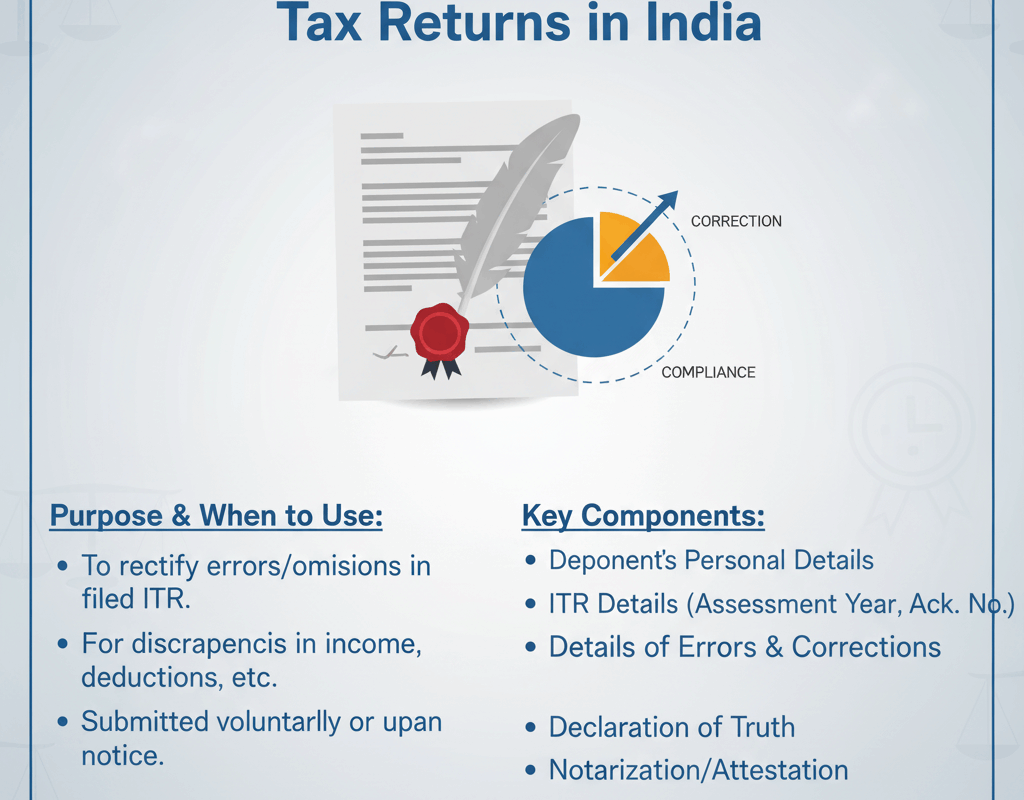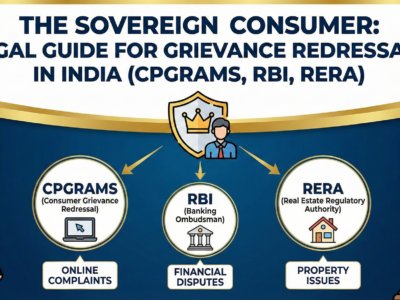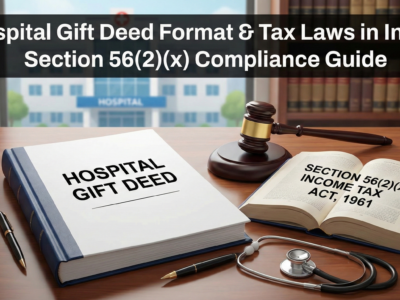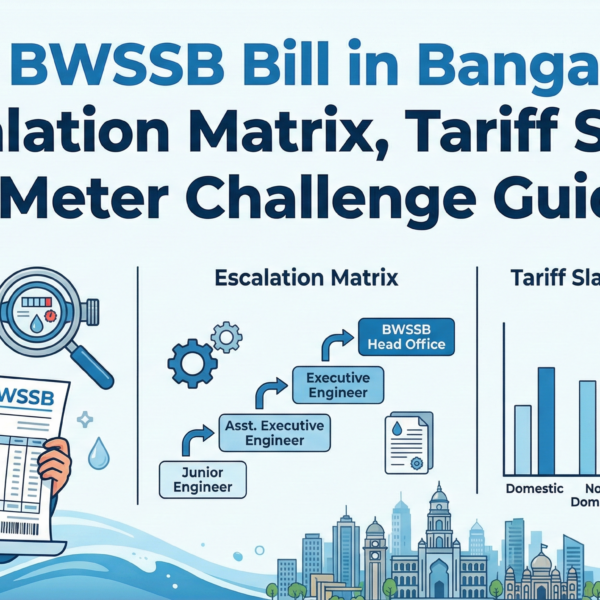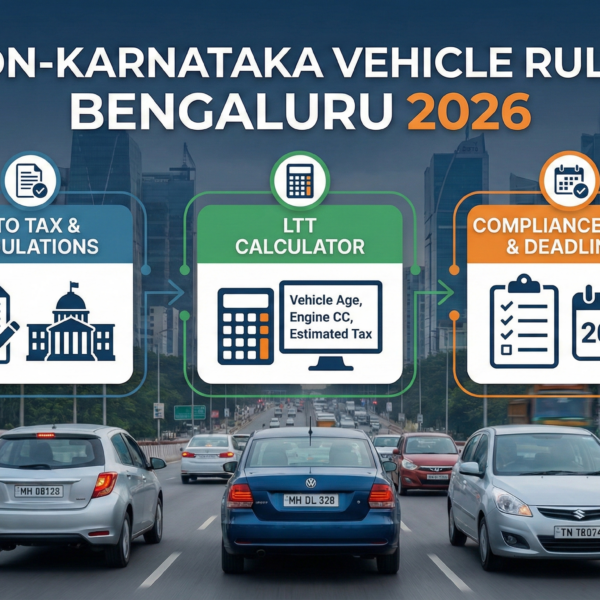Have you discovered an error in your tax return? Correcting a mistake in your Indian tax filing often requires more than just a revised form; it requires a formal, sworn statement. This comprehensive guide provides a detailed affidavit format, originally used for amending a Wealth Tax Return, and explains its crucial relevance today for revising an Income Tax Return under Section 139(5) of the Income Tax Act, 1961. Here, you’ll find multilingual templates, a step-by-step procedural guide to drafting and notarization, and expert advice on avoiding common pitfalls to ensure your correction is legally valid and accepted by tax authorities in 2025.
A Deep Dive into Indian Legal Document Validation
From a simple affidavit to a complex sale deed, every legal document in India must pass a rigorous validation process. This guide breaks down the critical requirements, common pitfalls, and best practices to ensure your documents are legally sound.
Last Updated: October 16, 2025
The 3-Step Document Validation Gauntlet
1. Substantive Validity
Is the agreement fundamentally sound? This is governed by the Indian Contract Act, 1872, ensuring capacity, free consent, and a lawful object.
2. Procedural Compliance
Has the document met fiscal and public notice duties? This involves correct stamping (Indian Stamp Act, 1899) and registration (Registration Act, 1908).
3. Formal Execution
Is the document properly signed and witnessed? This final step involves signatures, attestation by witnesses, and sometimes notarization to ensure authenticity.
The Legal Framework: A Deep Dive
Use the filters below to explore the specific laws and document types.
The Bedrock: Indian Contract Act, 1872
This Act is the foundation of all enforceable agreements in India. It distinguishes a simple 'agreement' from a legally binding 'contract'. For an agreement to become a contract, it must have the "7 Pillars of Validity".
The Procedural Gauntlet: Stamping & Registration
Even a perfect contract can be legally worthless if it fails these two critical procedural tests. They are not mere formalities; they are the gateways to enforceability.
Indian Stamp Act, 1899
A fiscal law with a powerful punch. Stamp duty must be paid before or at the time of execution. Failure to do so has severe consequences. Learn more about e-stamping.
Registration Act, 1908
This act provides public notice of transactions, primarily for immovable property. Compulsory registration is required for most property deals.
The Double-Bind of Non-Compliance
An unstamped document is inadmissible as evidence in court (Stamp Act, Sec 35). An unregistered property document does not transfer title and is also inadmissible (Registration Act, Sec 49). A document failing both is legally trapped.
Interactive Chart: The High Cost of Non-Compliance
See how the penalty for deficient stamp duty can skyrocket. Adjust the deficit duty to see the potential maximum penalty (up to 10x).
Deeds of Conveyance: Transfer of Property Act, 1882
This act governs the transfer of property between living persons. Here's a comparison of the three most common property transfer deeds.
| Feature | Sale Deed | Lease Deed (>1 year) | Gift Deed |
|---|---|---|---|
| Consideration | Monetary (Price) | Monetary (Rent/Premium) | Non-Monetary (Love & Affection) |
| Transfer of Rights | Absolute Ownership | Right of Possession/Enjoyment | Absolute Ownership |
| Registration | Compulsory (if value ≥ ₹100) | Compulsory | Compulsory (for immovable property) |
| Witnesses Required | 2 (for registration) | 2 (for registration) | Attested by at least 2 witnesses |
Validation in the Digital Age: The IT Act, 2000
The Information Technology Act gives legal validity to electronic contracts and signatures. However, there's a critical "digital divide," with major exceptions. Explore the nuances of e-signatures.
✅ What's Legally Valid Electronically
- Contracts via Email/Click-wrap
- Aadhaar-based e-Signatures
- Digital Signature Certificates (DSC)
- Service Agreements, NDAs
- Employment Contracts
❌ What Still Requires Physical Paper & Ink
- Sale or Conveyance of Immovable Property
- Wills and Trusts
- Powers of Attorney (PoA)
- Negotiable Instruments (like Promissory Notes)
Declaratory & Testamentary Instruments
This category includes documents that declare facts under oath (Affidavits), delegate authority (Powers of Attorney), or dispose of property after death (Wills).
Affidavits
A written statement of facts sworn under oath before an authorized officer (e.g., Notary Public). Must be in the first person and based on personal knowledge.
Power of Attorney (PoA)
Delegates legal authority to another person. A PoA for selling immovable property must be registered. Notarization is highly recommended.
Wills
A legal declaration of a testator's wishes. Must be in writing, signed by the testator, and attested by at least two witnesses. Registration is optional but strongly advised. Generate a Will for free.
Anatomy of an Affidavit
An affidavit is more than just a statement; it's a sworn declaration of facts. Understanding its components is key to grasping its legal power.
The Deponent
This is the person making the sworn statement. They must have direct knowledge of the facts being stated and must personally sign the affidavit.
The Solemn Affirmation
A declaration made by the deponent, confirming that the contents of the affidavit are true. This is the legal core, turning a simple statement into sworn testimony.
Verification & Attestation
The deponent verifies the contents as true, specifying which parts are based on knowledge and which on belief. It is then attested by an authorized official (like a Notary Public).
From Wealth Tax to Income Tax: A Modern Guide
While the Wealth Tax was abolished in India in 2015, the principle of correcting an error in a tax return remains critical. The affidavit format serves as a valuable precedent for amending returns under current laws, most notably the Income Tax Act, 1961.
Modern Relevance: Section 139(5) of the Income Tax Act
This section allows you to file a revised return if you discover any omission or wrong statement in your original income tax filing. An affidavit can be a crucial supporting document to explain the reason for the revision, especially if the mistake is not a simple calculation error.
Legal Format Templates
An interactive template for an affidavit to amend a wealth-tax return. Select your preferred language.
AFFIDAVIT WITH THE APPLICATION FOR AMENDING THE WEALTH-TAX RETURN
Before the Wealth-tax Officer, [Circle/Ward], [City]
Affidavit of [Your Name], aged about [Age] years, son/daughter of Shri [Father's Name], resident of [Your Full Address].
I, [Your Name], aged about [Age] years, son/daughter of Shri [Father's Name], resident of [Your Full Address], do hereby solemnly affirm and state as under:
- That I am the assessee in the aforesaid case and as such fully conversant with the facts deposed to below.
- That I have filed the return of wealth-tax for the assessment year [Assessment Year] on [Date of Filing].
- That in the said return, the particulars of shares and debentures held by me have been wrongly given. The mistake is a typing mistake and is inadvertent.
- That the correct particulars of shares and debentures held by me have been given in the list which is attached herewith.
- That the mistake came to my notice when my Advocate saw the papers in connection with the production of evidence before the Wealth-tax Officer.
- That in view of the above, it is requested that the return of wealth-tax may be amended and particulars of shares and debentures held by me given in the said return may be substituted with the list attached herewith.
Verification
I, [Your Name], the abovenamed deponent do hereby declare and verify that the contents of paragraphs 1 to 5 are true to my knowledge and the contents of para 6 are my submissions to this Hon'ble Wealth-tax Officer and nothing material has been concealed, and no part of it is false.
Verified at [Place] on this [Day] day of [Month], [Year].
____________________
Deponent
Frequently Asked Questions
Your 5-Point Document Validation Checklist
| Step | Key Question | Common Error to Avoid |
|---|---|---|
| 1. Substance | Is the object lawful, consent free, and are parties competent? | Ignoring a party's legal incapacity (e.g., a minor). |
| 2. Stamping | Is the correct stamp duty paid *before or at the time of* signing? | Paying stamp duty *after* signing the document. |
| 3. Execution | Is it signed by all parties and the required witnesses? | Having a beneficiary witness a will; missing witnesses for a gift deed. |
| 4. Registration | Is compulsory registration required? Has it been done on time? | Mistaking notarization for registration of a sale deed. |
| 5. Format | Is an electronic format legally valid for this type of document? | Creating a will or property sale deed electronically. |

